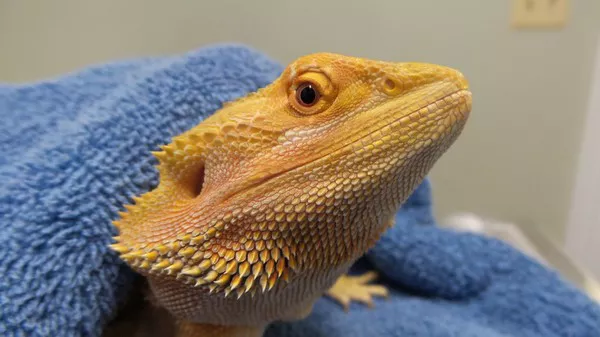Bearded dragons, known for their docile nature and unique appearance, are popular reptilian companions in the world of exotic pets. Their dietary requirements play a crucial role in their overall health and well-being. As reptile enthusiasts seek to diversify their pets’ diet, questions arise about introducing unconventional treats such as strawberries into the bearded dragon’s menu. In this article, we will delve into the compatibility of strawberries with the dietary needs of bearded dragons, considering both the nutritional benefits and potential risks.
Understanding Bearded Dragon Diets
Before exploring the inclusion of strawberries in a bearded dragon’s diet, it’s essential to comprehend their typical dietary requirements. Bearded dragons are omnivores, which means they consume a combination of insects and plant matter. A balanced diet for these reptiles includes a variety of insects, leafy greens, vegetables, and fruits. Striking the right balance is crucial to ensure they receive the essential nutrients for their growth, maintenance, and overall health.
Nutritional Profile of Strawberries
Strawberries, with their vibrant red color and sweet taste, are a favorite among humans. When considering bearded dragons, it’s vital to assess the nutritional content of strawberries. Strawberries are rich in vitamin C, manganese, and antioxidants. While these components are beneficial for humans, it is essential to evaluate how they align with the nutritional needs of bearded dragons.
Balancing the Diet with Fruit Intake
In the wild, bearded dragons have been observed consuming fruits as part of their diet. However, it’s crucial to emphasize moderation. Fruits, including strawberries, should be considered as occasional treats rather than staple foods. Too much fruit intake can lead to an imbalance in their diet, potentially causing health issues such as obesity or metabolic disorders. The key is to maintain a diverse diet that includes a mix of insects, leafy greens, and fruits in appropriate proportions.
Benefits of Including Strawberries
When fed in moderation, strawberries can offer some nutritional benefits to bearded dragons. The vitamin C content in strawberries can contribute to the reptile’s immune system, aiding in its ability to ward off illnesses. Additionally, the antioxidants present in strawberries may have positive effects on the overall health of bearded dragons. Including strawberries as part of a varied diet can add sensory enrichment, providing different textures and flavors for the reptile to explore.
Potential Risks and Considerations
While strawberries can be a nutritious addition to a bearded dragon’s diet, certain risks and considerations must be acknowledged. One primary concern is the sugar content in strawberries. Bearded dragons, in their natural habitat, do not encounter sugary fruits frequently. Excessive sugar intake can lead to digestive issues, obesity, and other health problems. Therefore, it is imperative to offer strawberries sparingly and in small, manageable portions.
Feeding Guidelines for Bearded Dragons
To incorporate strawberries into a bearded dragon’s diet, adherence to specific guidelines is crucial. Fresh strawberries should be thoroughly washed to remove any pesticides or contaminants. It is advisable to slice the strawberries into manageable pieces, ensuring they are appropriately sized for the bearded dragon to consume easily. Offering strawberries as an occasional treat, perhaps once a week, helps strike the right balance without compromising the reptile’s overall nutritional intake.
Observing Behavioral Responses
Bearded dragons are known for their individual preferences and sensitivities. As with any new food introduction, observing the reptile’s response to strawberries is vital. Some bearded dragons may show enthusiasm for the fruity treat, while others may exhibit disinterest. Monitoring their behavior, appetite, and digestion after consuming strawberries provides valuable insights into the reptile’s compatibility with this fruit.
Alternatives to Strawberries
If concerns about strawberries persist or if a bearded dragon shows aversion to this fruit, there are alternative options to diversify their diet. Fruits such as blueberries, raspberries, and melons can offer similar nutritional benefits without the high sugar content found in some fruits. Rotation of fruit choices ensures that the bearded dragon receives a spectrum of nutrients from different sources.
Consulting with a Veterinarian
Before making any significant changes to a bearded dragon’s diet, it is advisable to consult with a veterinarian specializing in reptile care. A veterinarian can provide personalized guidance based on the specific needs and health condition of the individual bearded dragon. This professional advice is invaluable in ensuring the optimal health and well-being of the pet.
See Also: Exploring the Feasibility of Feeding Purple Grapes to Bearded Dragons
In conclusion, the inclusion of strawberries in a bearded dragon’s diet can be a rewarding experience, provided it is done with careful consideration and moderation. Understanding the nutritional profile of strawberries, balancing their intake with other food sources, and monitoring the reptile’s response are crucial steps in offering a diverse and enriching diet. As responsible pet owners, it is our duty to prioritize the health and well-being of our bearded dragons, making informed choices that contribute to their longevity and vitality.
Related Topics:
Ensuring Optimal Health: Essential Supplements for Bearded Dragons
Unlocking the Essentials: What Vitamins Do Bearded Dragons Need?
What Sand is Best for Bearded Dragons?

























